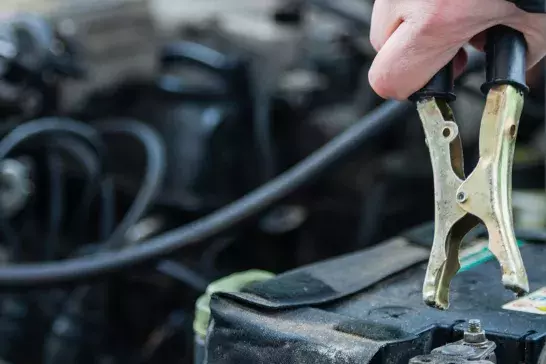
Needing a tow truck is no fun
Especially when you're in a stressful situation. It’s important to know your rights and be aware of the risks that come with being towed by a non-CAA tow truck operator. Bottom line? A CAA Membership is your best protection. Don’t have a CAA Membership? Sign up to take advantage of great deals and savings. CAA Memberships start at just $301 a year, plus tax.
Why is the Towing and Storage Safety and Enforcement Act (TSSEA) important?

Upholding integrity
The towing industry in Ontario has been marred by disreputable actors taking advantage of drivers during times of stress and vulnerability when they need assistance the most. Often, they use high-pressure tactics, misrepresent their services or charge inflated fees.
Enforcing regulations
For over a decade, CAA clubs in Ontario have actively worked with government officials and stakeholders in advocating for robust provincial regulation of the towing industry that protects consumers. On January 1, 2024, Ontario adopted these new rules and a code of conduct for tow operators under the TSSEA. CAA operates in full compliance with this new legislation. As always, CAA Members continue to receive the same trustworthy services upon which our reputation is built.

What can you expect under the new rules?
You have the right to decide who can tow your vehicle and to what location, unless otherwise directed by law enforcement.
Every tow truck operator and vehicle storage operator (company owner) must have a Certificate to offer services in the province of Ontario. Every tow truck must clearly display its operator name and TSSEA certificate number on the truck. You have the right to see a copy of the certificate, in either physical or digital form.
Tow truck drivers must obtain written consent before they tow your vehicle. Without a signed agreement, (Consent to Tow form), the tow operator cannot charge for towing services. (NOTE: Exemption from towing consent for membership-type or roadside assistance contract).
You must be provided with an itemized invoice before requesting payment and a proper receipt upon payment. (NOTE: Exemption from invoicing for services covered under membership-type or roadside assistance contract). The same is true for vehicle storage.
Rates cannot exceed the maximum rates published by the Ministry of Transportation. Drivers must supply the client with a list of maximum rates with the Consent to Tow form.
Referrals to a business, facility or person can only be given, if requested.Tow truck drivers and operators must disclose any benefit they receive when providing referrals to a person, business or facility.
Multiple payment methods (cash, cheque, credit card, debit) must be accepted.
Towed vehicles must be transported along the most direct route. The vehicle owner must be notified by the tow operator or tow truck driver when taken to a different location from the one the vehicle owner specified.
Tow operators must ensure every driver employed obeys the TSSEA regulations, the Highway Traffic Act and its regulations.
The customer must be allowed to retrieve personal property from towed vehicles at no charge. Storage operators must allow authorized persons access to retrieve personal items from vehicles during business hours or pre-arranged times, at no charge.
Consumers may register complaints with MTO’s towing office through this online portal on the Ontario.ca website. The Director of Towing will have the authority to issue, suspend or cancel a tow truck operator and vehicle storage operator certificate, including conditions to a certificate. Offences can be enforced by police, appointed TSSEA Inspectors, and MTO Enforcement Officers.
Car care and tips
It’s the best way to stay on top of your vehicle’s health but it can also prove valuable if a warranty issue arises and proof of maintenance is required to obtain warranty service.
Your vehicle's battery is an extremely important component. It must remain in good condition to withstand harsh cold or extreme heat. A simple battery check can prevent you from being stranded in an empty parking lot. Most car batteries last between three to five years.
Temperature changes can affect tire pressure. Having the proper tire pressure will maximize your gas mileage and save wear and tear on your seasonal tires!
Tires naturally degrade over time – and driving with insufficient tread depth or sidewall damage can be hazardous. Do a Toonie test to check if your tires are safe for driving.
Don't wait until small chips lead to costly repairs down the road! Parking your car directly in the sun is one of the fastest ways for a crack to grow. If a chip grows too much, windshield repair may no longer be an option, and your windshield may need to be replaced.
As a general rule, you should change your oil at least twice yearly. Remember that driving habits and temperatures can affect how quickly oil degrades. Most newer cars have oil monitoring systems, so your vehicle will track usage and oil conditions, signalling when you need a change. If you have an older vehicle, check the owner’s manual or factory maintenance schedule for information on maintenance schedules.
Deep cleaning of your car’s interior prevents dust from causing wear and tear and removes stubborn stains from your dashboards, mats or leather seats. When your vehicle is deep cleaned, a lot of debris is removed, improving the air quality inside the vehicle. Clean airflow and the absence of garbage in a car help drivers and passengers enjoy a germ-free environment. If you ever wish to sell your car, potential buyers will see how well cared for it is.
Automotive FAQ
Yes, this is a Member-exclusive service. Join online today!
1. Visit caaneo.ca/termsandconditions for full Membership Terms and Conditions. Terms and conditions apply.












